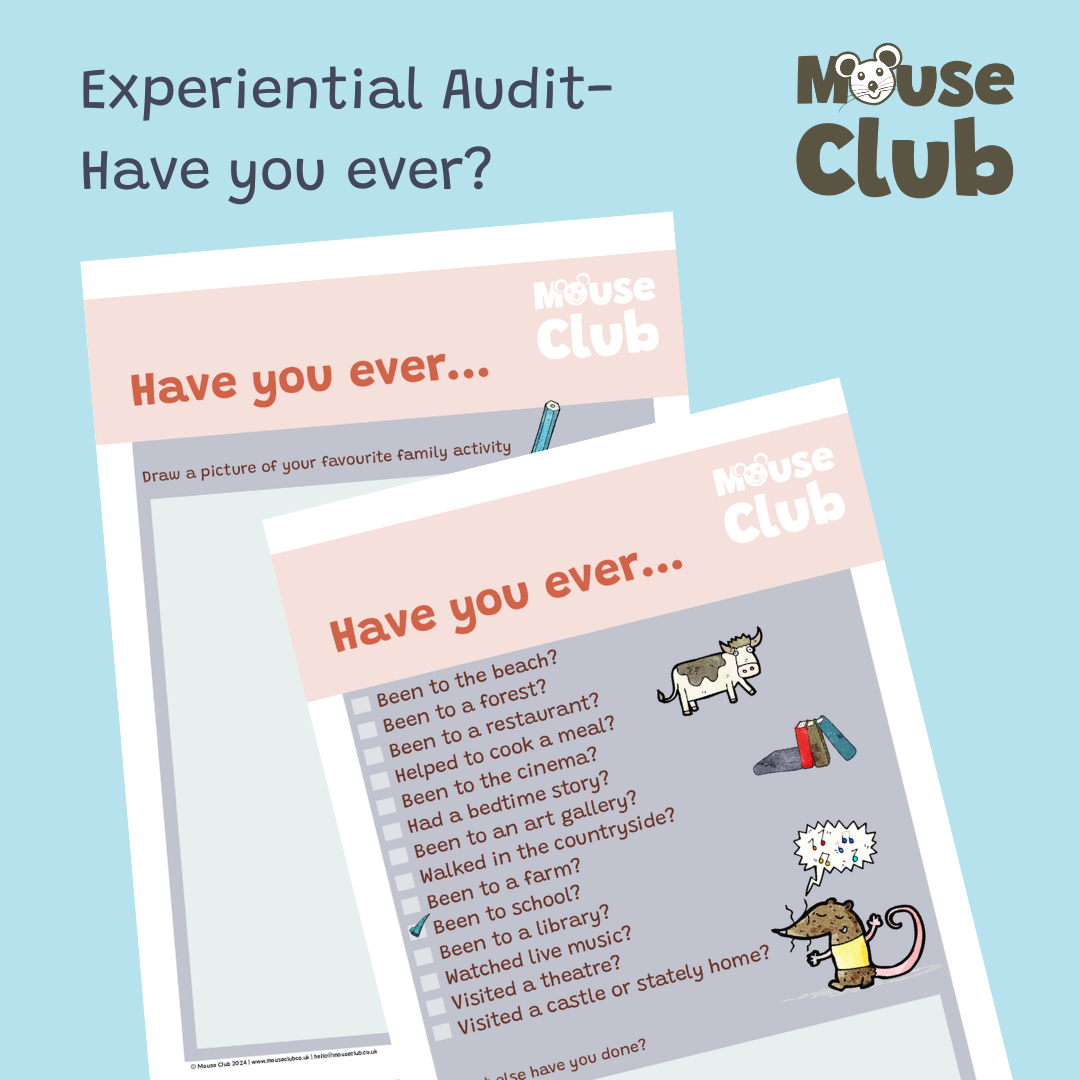
Early Years Experiential Audit: Have You Ever?
According to YouGov for Art Fund research, nearly half of children (45%) with parents who are unemployed or not working have not visited a museum in the past year.
As a nursery teacher, it is crucial to understand the experiences and activities children engage in at home, as what children do at home can significantly influence their development and learning. And research backs this up, showing that children exposed to broader experiences and activities at home tend to have better cognitive, social, and emotional development.
Cultural enrichment can be attained by visiting many free and accessible sites such as museums, farms, art galleries, parks, and libraries. Having these experiences can expose children to new ideas, perspectives, and knowledge, which can broaden their understanding of the world around them. Reading books, singing, and talking together as a family can advance children's language skills, vocabulary, and comprehension. It also fosters a love for reading and learning.
Undertaking everyday living skills together, such as cooking and cleaning, can promote healthy habits and teach children to follow instructions, utilise math skills, and learn the benefits of teamwork. Going outside, playing, and experiencing new things together strengthens the bond between family members and promotes social skills, cooperation, and problem-solving abilities in children.
Research studies such as the National Institute of Child Health and Human Development (NICHD) and the OECD have shown that these kinds of positive family interactions, activities, and experiences at home contribute to children's overall development and complement their experiences at school.
“Engaging in extra-curricular activities and parental involvement in schooling both show positive results, but they are beneficial particularly when they are consistent with the goals and activities of the school.” The Effects of Family on Children’s Learning and Socialisation Schneider, Keesler, and Morlock (2010)
Completing the Mouse Club experiential audit with families will help you broaden the experiences and opportunities available to them while improving your own understanding and knowledge of the school's local communities. You can tailor your teaching strategies to build upon and support their existing knowledge and skills and link extra-curricular visits with the local area, such as visiting local parks, markets, libraries, shops, gardens, war memorials, statues, stately homes, museums, etc.
Expanding the idea, you could complete a whole-school experiential audit. This is a valuable process for schools to assess and improve various aspects of the educational environment and practices to fill common gaps.
Claim your FREE Mouse Club experiential audit. Use this friendly and fun audit tool to understand the experiences and activities children engage in at home while gaining a deeper understanding and knowledge of your school's communities. With this information, you can tailor your teaching strategies to build upon and support children's existing knowledge and skills and link extra-curricular visits with the local area.
